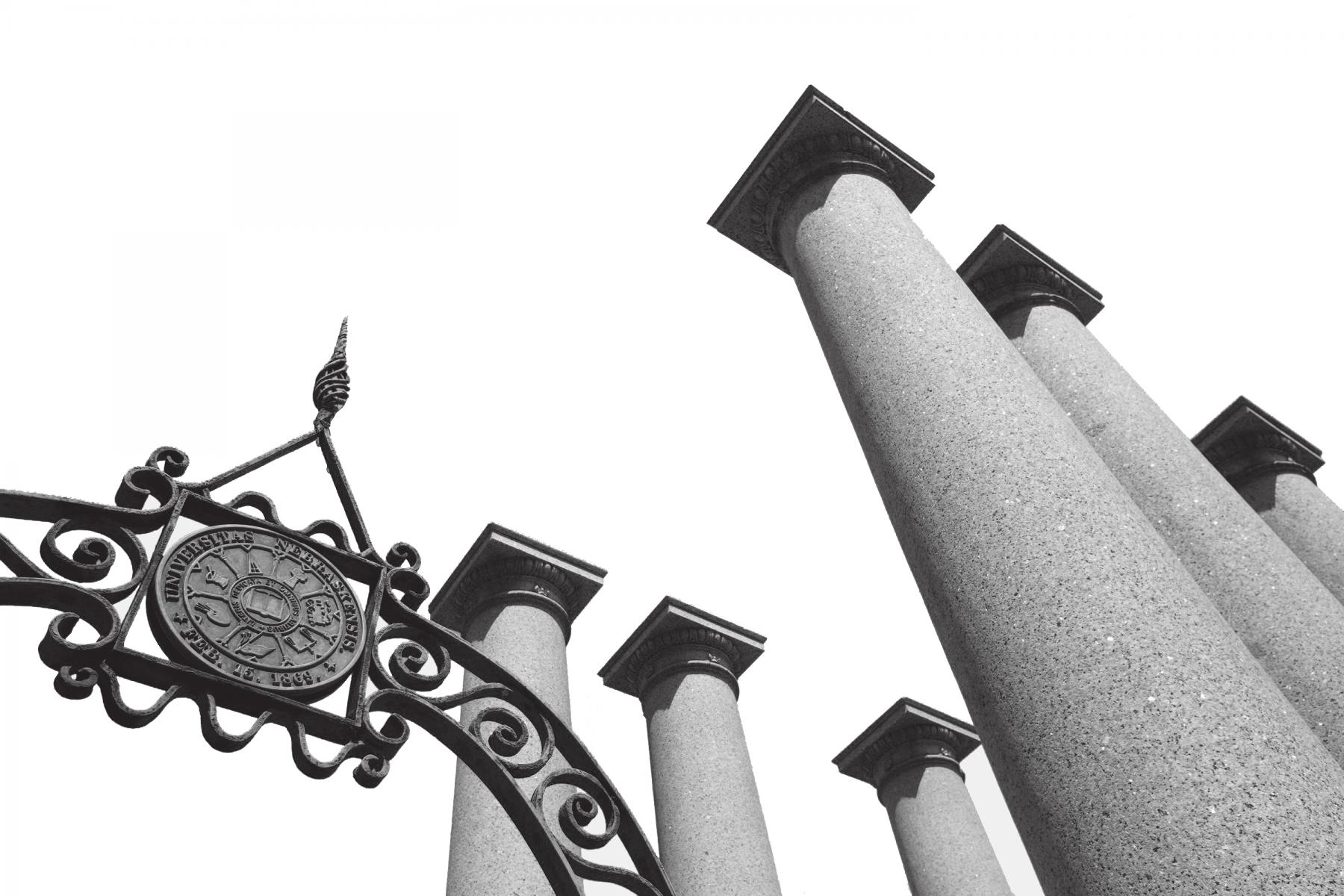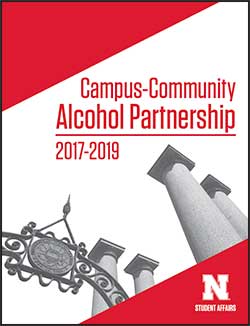Campus-Community
Alcohol Partnership

Changing the Culture
The University of Nebraska-Lincoln began a concerted effort to lower the binge drinking rate among students in 1997. A prestigious grant from the Robert Wood Johnson Foundation provided support from 1998 through 2007, which led to the development of NU Directions, a campus and community partnership designed to influence change through environmental policy, enforcement and education.
Nebraska has come a long way in decreasing the prevalence of students who binge on at least one occassion in the past two weeks from 62% in 1997 to 38% in 2015.
Despite tremendous accomplishments and efforts in the past, high-risk drinking continues to challenge our campus.
In fall 2016 an uptick in the number of students transported to The Bridge (detoxification center) with Blood Alcohol Content exceeding 0.20, and the number of students transported to local hospitals for acute alcohol intoxication demonstrated increased need for campus and community intervention.
In response, the Vice Chancellor for Student Life commissioned for a task force to address negative behaviors associated with high-risk alcohol consumption. The Campus-Community Task Force to Reduce High-Risk Drinking, comprised of faculty, staff, students, law enforcement and business owners, used a collective impact model to establish progress indicators and priorities.
Metrics of Success
DECREASE
The number of students who violate laws/policies
1,469 alleged violations of the Student Code of Conduct
418 alcohol citations from law enforcement
The number of wild party complaints associated with student-hosted parties
45 disorderly house citations to students
(11% of those cited for alcohol violations)
The number of students admitted to The Bridge
217 students admitted to The Bridge
Average BAC of 0.209
INCREASE
The percent of students who intervene in high-risk situations
58% of students reported when they observe a friend who had too much to drink, they are most likely to try to stop the behavior.
The percent of students adopting protective behaviors
50.6% of students avoid drinking games
46.9% of students set number of drinks in advance
79.7% of students eat before/during drinking
77.3% of students keep track of how many drinks are consumed
Statistics from the 2016-2017 academic year
Making Change HappenOur Priorities
1 | Expectations, accountability & consequences for individuals
- Clarify key university-wide alcohol-related messages/policies.
- Explore partnerships to strengthen consistency and breadth of messages for alcohol expectations, policies, procedures and consequences.
- Review, update and improve consistency of communication provided to prospective/current students by Greek councils and individual chapters.
- Increase collaboration between UPD, CSOs, private security services and Greek community.
- Review, update and improve timing of communications provided to prospective/current students and parents by University Housing.
- Increase collaboration between UPD, CSOs and University Housing.
- Include student/parent related- messages, resident alcohol use data and updated UPD/CSO info in staff and student leader training.
2 | Expectations, accountability & consequences for groups
- Clarify key university-wide alcohol-related messages/policies.
- Develop online training program for student groups.
- Make group violations to the Student Code of Conduct (SCC) available to the public based on established criteria.
- Provide educational materials related to SCC.
- Educate about adjudication process including process and timeline.
- Establish a subordinate hearing board to educate, advise and adjudicate group violations to the SCC.
- Develop a matrix outlining minimum and discretionary sanctions.
- Establish general guidelines to help student groups address problematic alcohol-related behaviors among individual members of the group.
3 | Alcohol Education
- Provide on-boarding success education for new undergraduates.
- Display educational messages in classrooms during class periods.
- Integrate alcohol education topics into college sequence of courses on personal and professional development.
- Offer near 21st birthday “drinkers education” experience.
- Continue focus on alternative activities.
- Use NSE and CAP data to educate about norms prior to and upon arrival to campus, and to promote group interventions based on unique needs of groups.
- Train advising faculty and staff on Motivational Interviewing techniques.
4 | Reducing dangerous drinking in a social host setting
- Collaborate with students and student groups to offer a safe and responsible game day experience.
- Implement a revised version of the FailSafe program for student groups.
- Educate students about the consequences associated with high-risk social events including social host laws and disorderly house citations.
- Investigate a party registration program similar to those adopted by UMass-Amherst and the University of Colorado.
- Develop an education campaign designed to provide students with practical tips for planning and hosting a safe and responsible party.
- Increase opportunities for Greek new member classes to socialize without alcohol.
- Explore adoption of a Community Safety Officer program in identified neighborhoods.
5 | Policies
- If necessary, amend the Good Samaritan Law to include limited legal liability for both the caller and the person of concern.
- Collaborate with the Nebraska Liquor Control Commission to draft, introduce and pass legislation regulating alcohol on charter buses.
- Collaborate with Diversion Services to notify students about diversion eligibility and shift responsibility for education/service to the university.
- Collaborate with local alcohol retailers to implement a third party contract for Greek groups and student organizations.
- Collaborate with The Bridge to implement a policy/protocol for transporting students who live on campus back to campus following their release.
- Collaborate with The Bridge to implement a policy/protocol for connecting admitted students with CAPS.
